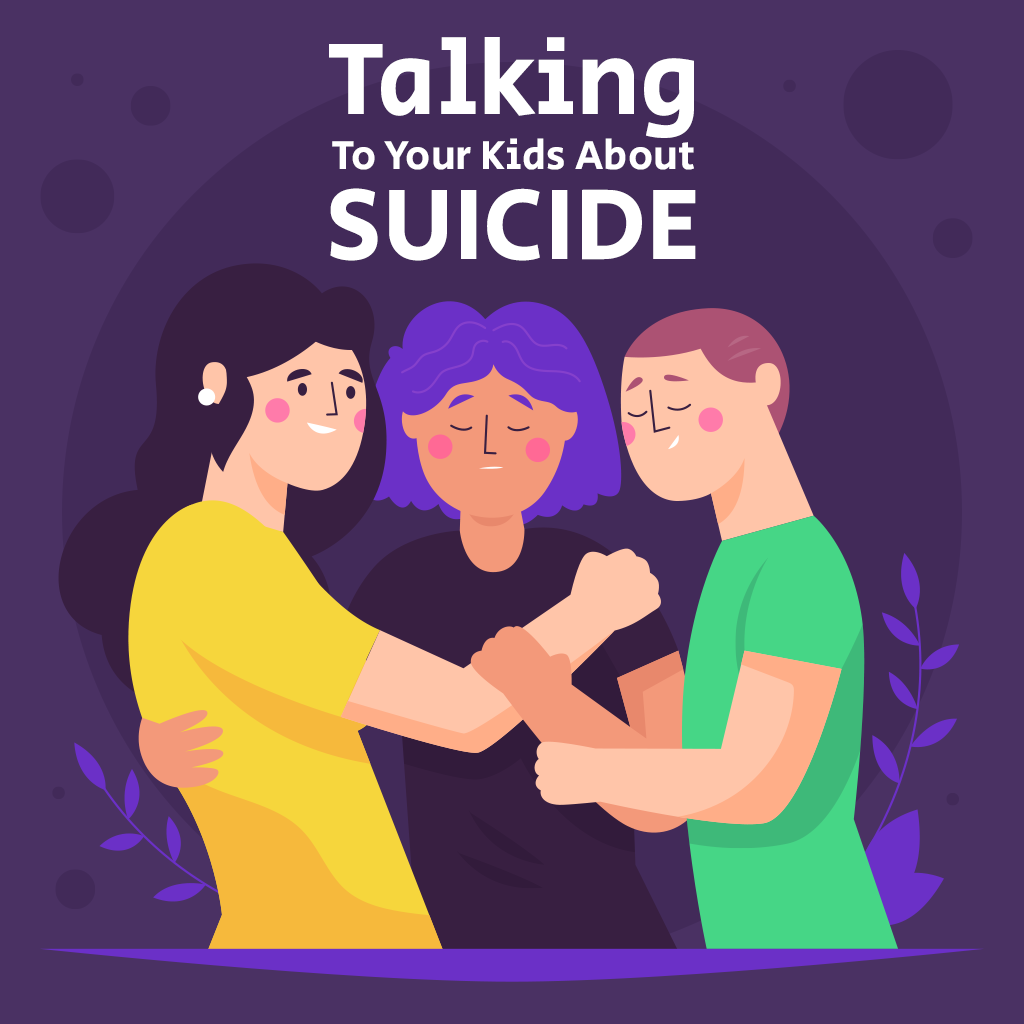If you’re a parent, you know that talking to your kids about suicide can be difficult. But it’s important to have open and honest conversations with them about suicide so they feel comfortable coming to you if they ever need help. Here are five helpful tips for talking to your kids about suicide.
1. Age-appropriate information about suicide.
It is important to give your kids age-appropriate information about suicide. For younger children, this may mean simply explaining that some people die by suicide. For older children, you can provide more detailed information about why someone may want to take their own life. Either way, it is important to stress that suicide is not a solution to problems and that there are always other options available.
2. Normalize their feelings
Let your kids know that it is perfectly normal to feel upset, confused, or even scared when talking about suicide. It can be a difficult topic to discuss, but it is important to let them know that their feelings are valid.
3. Encourage questions
Encourage your kids to ask questions about suicide. They may be afraid to ask, but it is important that they feel like they can come to you with anything. Answering their questions honestly will help them understand suicide better and may even prevent them from considering it as an option themselves.
4. Emphasize that help is available
It is important to stress that there is always help available for anyone considering suicide. Whether it is a hotline, a therapist, or even just a friend, some people care and can help. Let your kids know that they can always come to you for help as well.
5. Create a safe environment
Create an environment in which your kids feel safe talking about suicide. This means letting them know that they will not be judged or ridiculed for their feelings. It is also important to keep the lines of communication open so that they feel comfortable coming to you with anything.
6. It’s okay to talk about suicide.
You might be worried that talking about suicide will plant the idea in your child’s head, but this isn’t true. It’s important to talk about suicide so your child knows that it’s a real problem that people face and that there is help available.
7. Be open and honest.
When you’re talking to your child about suicide, be open and honest about your feelings. Let them know that it’s okay to feel sad, angry, or scared. And let them know that it’s normal to have thoughts about suicide.
8. Help them understand why people might want to die.
Many kids think that suicide is selfish. But it’s important to help them understand that people who are considering suicide aren’t thinking clearly. They might be in a lot of pain and see death as the only way to escape it.
9. Reassure them that help is available.
If your child is feeling suicidal, assure them that there is help available. Let them know that they can talk to you or another trusted adult anytime they need to. And provide them with resources, like the National Suicide Prevention Lifeline (1-800-273-8255), which they can call if they ever need help.
10. Follow up.
After you’ve had a conversation about suicide with your child, follow up with them. Ask them how they’re doing and if they have any questions. Let them know that you’re always there to talk if they need to.
Talking to your kids about suicide can be difficult, but it’s important to have these conversations. By being open and honest, you can help your child understand suicide and know that help is available if they ever need it.
Conclusion
Talking to your kids about suicide can be a difficult but important conversation to have. It is important to be open and honest with your kids, provide age-appropriate information, and encourage them to express their thoughts and feelings freely without judgment from you as the parent or caregiver. If you need assistance, don’t hesitate to seek professional help from a mental health expert familiar with talking about suicide with children and adolescents. Keeping the lines of communication open between you and your child will promote a healthy relationship built on trust and mutual respect.

If you are feeling suicidal or have thoughts of harming yourself please contact 988 for immediate help. The National Suicide Prevention Hotline provides confidential emotional wellness services to aid individuals struggling through depression despite any age group being included within its scope; both children & adults deserve opportunities longevity toward hope
Suicidal Quiz
Feeling suicidal? Take our free suicidal quiz to find out if you are at risk for suicide. The quiz is anonymous and takes only a few minutes to complete. It is important to know your risk factors for suicide to get the help you need. Take our free suicidal quiz now!
Mental Health Resources
If you think that you or someone you know may have mental health issues, we encourage you to seek professional help. Here are some mental health resources that can help:
- National Alliance on Mental Illness: NAMI provides support and education for people with mental illness and their loved ones.
- American Psychiatric Association: The APA is a professional organization for psychiatrists.
- National Institute of Mental Health: The NIMH is a research organization that funds mental health studies.
- Centers for Disease Control and Prevention: The CDC provides information on mental health and well-being.
- Substance Abuse and Mental Health Services Administration: SAMHSA provides resources on mental health and substance abuse.
